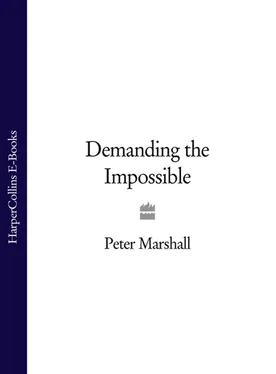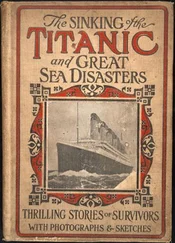But while Rousseau’s treatment of freedom is undoubtedly subtle, it makes way for authoritarian sophists to masquerade as freedom-loving liberals. Rousseau failed to realize that being free and being subject at the same time is logical nonsense and practically impossible. Ultimately, he parts company with anarchists because for him law does not enslave but liberates. Some might accept a definition of freedom as a form of self-discipline, in the sense of being free from passions and instincts or being master of oneself, but none would accept it as obedience to a higher law enforced by the State.
It is possible to understand the paradox of Rousseau’s love of freedom and his hankering after authority in the context of his personal revolt against his society. The son of a Swiss watchmaker, he experienced in his wandering life as a valet, secretary, and writer the modern anxiety of being an isolated individual born in a world which appears out of joint. He was always keen to assert his personal independence, yet longed for a supervising father-figure. Alienated and ostracized from his society, he sought the wholeness of true community. In his strengths and weaknesses, he speaks directly to our age.
Yet this does not excuse the authoritarian streak in his personality and thinking. It is clear in his view and treatment of women, for instance, that he had a strong patriarchal and chauvinist tendency. He not only resented the dominance of his mistress-patrons, but treated his servant-mistress abominably – sending her children by him to the public orphanage. He always considered women as the ‘sex which ought to obey’. 63 Four of the five books of his treatise on education are devoted to the education of Emile, while only one deals with the upbringing of the girl who is to become his pliant handmaiden. Rousseau asserts that it is a law of nature that ‘woman is made to please and to be subjugated’ and ‘must make herself agreeable to man’. 64 Where men are active and strong, women are weak and feeble.
While Godwin turned away from the later Rousseau, it is not surprising that the dictator Robespierre in the bloodiest stage of the French Revolution should canonize him. Nevertheless, Rousseau deserves a prominent place in the anarchist tradition for his stress on the close link between property and government, his attack on social inequality, his criticism of elitist culture, his concern with popular democracy and sovereignty, his belief in the natural goodness of humanity, and his praise for the simple life close to nature. He was fully aware of the psychological disorders fostered by Western civilization, especially the ways in which it made people anxious, restless, competitive and hypocritical. He showed how history is a depressing record of humanity’s failure to realize its full potential and how modern man is alienated from his true self and society. In his writings and his life, Rousseau demonstrated that by nature men are free, but they readily enslave each other. More than any other writer of the Enlightenment, he thus revealed the tensions between a libertarian and an authoritarian approach to democracy which eventually led to the split between the anarchist and statist wings of the socialist movement in the nineteenth century.
10 The British Enlightenment
AFTER THE COLLAPSE OF the English Revolution and the restoration of the monarchy in 1660, there was little social or intellectual room in Britain for the further development of libertarian theory. After the ‘Glorious Revolution’ of 1688 which checked the power of the king, parliamentary democracy was established in Britain and has held sway ever since. John Locke, the philosopher of common sense and moderation, justified the event and gave the ultimate liberal defence of government.
The ‘state of nature’ according to Locke, is a state of ‘perfect freedom’ but competition between roughly equal human beings would make life uncertain and property relations unstable. Hence the need for government and law to enable them to protect life, liberty and property. The latter was most important since for Locke life and liberty could be considered as a form of personal property. He therefore recommended that a social contract be made between people to set up a government to make common laws which would ensure the secure enjoyment of property: ‘Political power, then, I take to be a right of making laws, with penalties of death, and consequently of all less penalties for the regulating and preserving of property, and employing the force of the community in the execution of such laws.’ 1 While recognizing that it is only labour that creates wealth, he added that it is legitimate for owners to expropriate the wealth created by the labour of their servants and their slaves.
It was an advance on the theory of the divine right of kings, but Locke summed up the ideology of the emerging middle class who wished to wrest power from the landed aristocracy. As such it was a theory of ‘possessive individualism’, which saw the ownership of private property as sacrosanct. 2 The ideology was to find its ultimate expression in the American Constitution of 1776 which recognized that human beings (or rather male Europeans) are born free and equal and have a right to ‘life, liberty and the pursuit of happiness’.
While Locke developed the classic liberal defence of government by close reasoning, Jonathan Swift at the beginning of the eighteenth century enter-buried anarchist ideas in his imaginative writings. It might at first seem odd to consider the Anglo-Irish Tory Dean Swift as a libertarian thinker. By ‘liberty’, Swift principally meant a condition of the citizens in a parliamentary monarchy. 3 He shared this view with Locke but he wanted to restrict suffrage even further to only large landowners. Moreover, in his writings Swift often appears as a cynical misanthrope; he called, for instance, the bulk of the English nation ‘the most pernicious Race of little odious vermin that Nature ever suffered to crawl upon the Surface of the Earth’. 4 But although Swift had a low estimate of humanity and used savage satire to lambaste their foibles and vices, he undoubtedly wrote for their betterment and enlightenment. He hated tyranny and consistently opposed British imperialism, especially in Ireland.
Inspired by the new accounts of foreign lands by European travellers, Swift, in his Gulliver’s Travels (1726), used the popular genre of the imaginary voyage to create a work of fantasy in which he violently attacked the values of his own society and age. Middleton Murry described Gulliver’s Travels as ‘the most savage onslaught on humanity ever written’. 5 Gulliver is a frustrated aristocrat who comes back to England from his voyages defeated, railing against the dominant values of his day.
Swift uses a series of Utopias and anti-utopias to criticize the vices and follies of his own country. In Lilliput, for instance, there is a rigid division of society and absurd political pretensions. In Brobdingnag, the inhabitants are hard-working and live a life of few wants and simple virtue. No law is allowed to exceed the number of letters in the alphabet. The flying island of Laputa is a direct satire of the state of England and Ireland.
The most interesting voyage however is Gulliver’s visit to the country of the Houyhnhnms in Book IV which mounts a direct attack on the European States with their law, government, commerce and war. The work has often been considered unremittingly anti-utopian, and Swift is as ironical and ambiguous as can be, but Godwin, for one, was profoundly influenced by this anarchist arcadia and maintained that Swift had ‘a more profound insight into the true principles of political justice, than any preceding or contemporary author’. 6
Читать дальше












